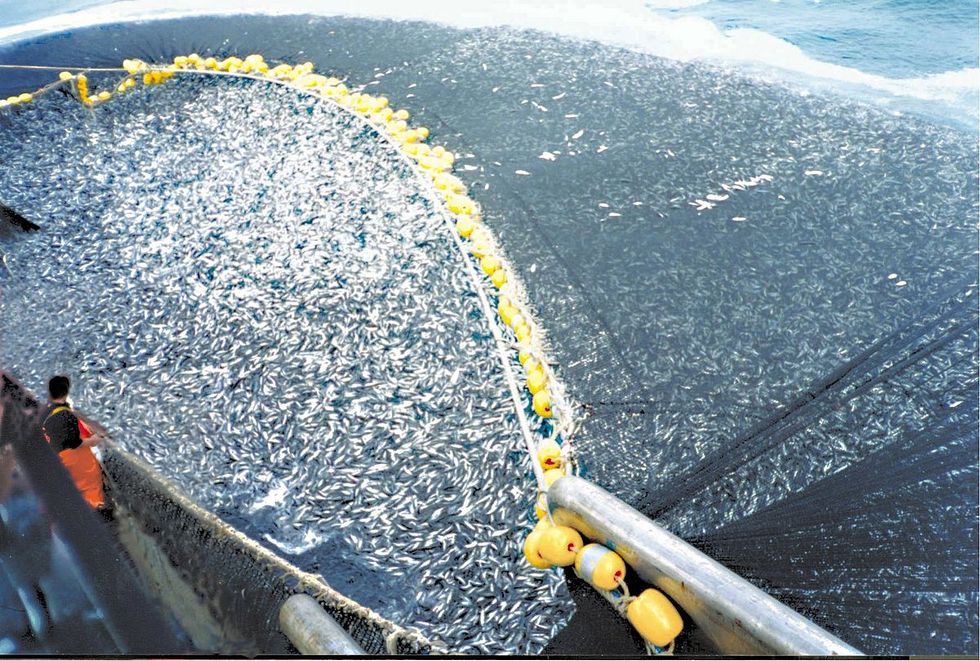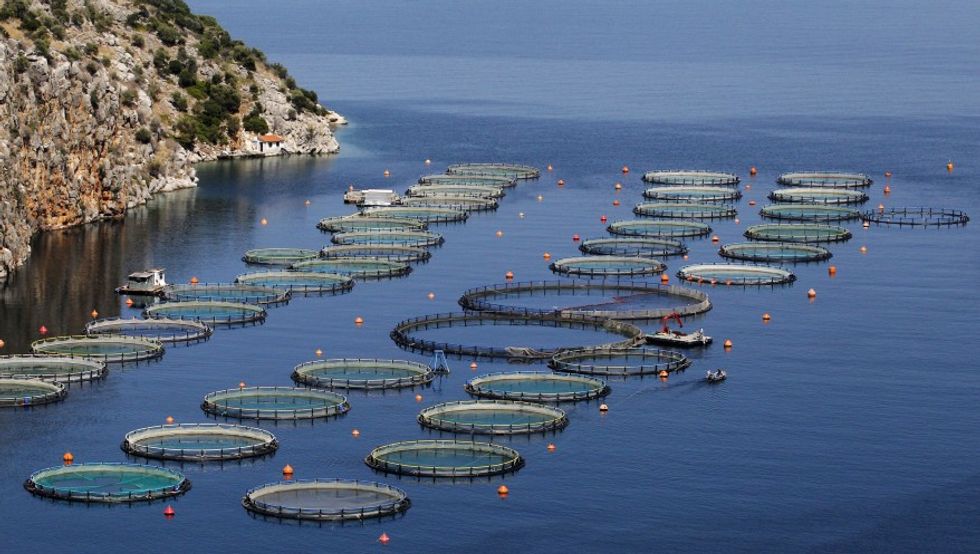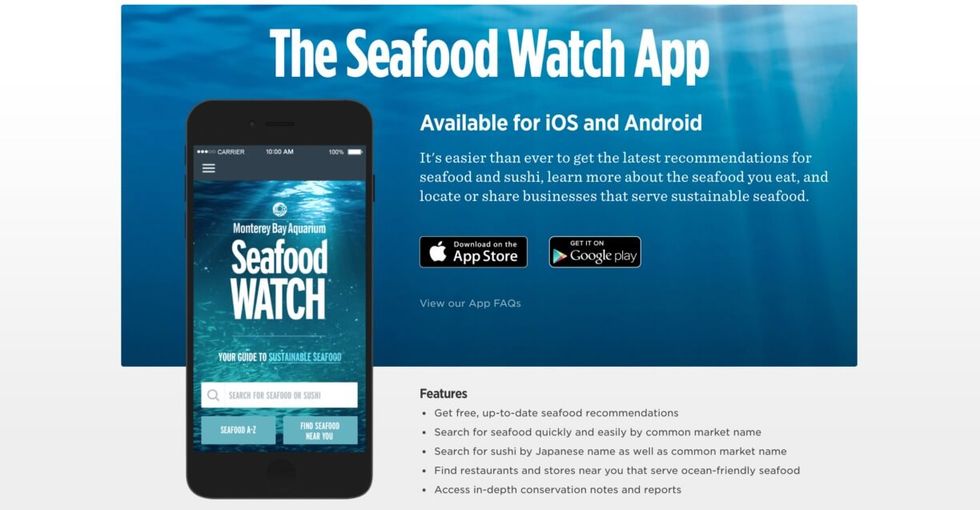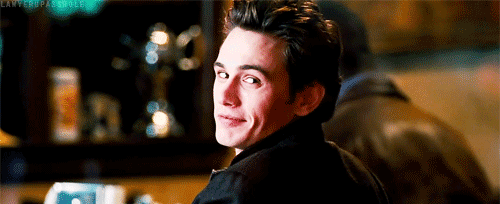If you are reading this then it is safe to assume that, like myself, you LOVE sushi. Whether it is a California Roll, a pile of Sashimi, or some other magnificent concoction of delicious sauces, rice, and fish, you love it! If you are reading this you have most likely had multiple conversations with your sushi-hating friend(s) where you tell them that if they would just give it a chance, they would love it.
If you are currently nodding along, then you my friend are a sushi lover, and you NEED to know about the problem currently surrounding your sushi.
You may or may not be aware, but sushi lovers everywhere should be concerned about seafood sustainability. Seafood sustainability is all about whether or not the sushi you love is going to be around in the future, and whether or not the sushi you are currently eating comes from somewhere that is working to keep fish populations healthy and (most importantly for you, sushi lover) reproducing.
Seafood sustainability is not an issue of whether or not fish should be farmed like some sources may attempt to say. Fish farming is an effective and necessary way to keep up with the world's demand for fish, especially at our current depleting wild-fish populations.
Seafood sustainability is actually concerned with fish farming, as well as commercial fishing practices. The way in which fish farming and commercial fishing are executed affect the fish we eat, wild population sizes, and overall ocean and environment health so they are extremely important.
There are two major ways we receive fish for our sushi. One is through the fishing/capturing of fish in the wild, and the other is through fish farming.
Fishing
Many of the fish you eat at your favorite sushi restaurant are currently at dangerously low numbers in the wild. The Monterey Bay Aquarium says this about current wild-fish populations, "In just the past decade, Atlantic populations of halibut and yellowtail flounder joined this list of species at all-time lows.
The cod fishery, once a backbone of the North Atlantic economy, collapsed completely in the early 1990s and has shown little evidence of recovery two decades later. The breeding population of Pacific bluefin tuna is now at only four percent of its original size and decline will continue without significant, immediate management changes."
The cause of these low numbers is primarily illegal, and legal over-fishing practices. Over-fishing is a huge issue in the depletion of fish populations in our oceans, but it is not the only problem with commercial fishing.
The Monterey Bay Aquarium says, "Other harmful effects of fishing—some of which are preventable with modifications to gear—also impact the ocean, including the accidental catch of unwanted species (bycatch) and habitat damage from fishing gear."
This means that like everything there is a good and a bad way to fish, and right now the world is in need of further regulation to make sure fishing is being done in a way that will maintain sustainability. Monterey Bay Aquarium's website has a great breakdown of all the different tools currently used for fishing in the wild and the positive and negative effects of each, which you can view through this link: Fishing Methods.
Fish Farming
There are many different ways to farm fish, all of which take some toll on the environment, but some much more so than others.
So, if farming fish is possible why not forget about the wild populations? There are many reasons for this, some more controversial than others but The Monterey Bay Aquarium put it very well by simply stating, "While farmed fish and shellfish can supplement our seafood supply, they can't replace the variety and abundance of seafood from the wild. Some fish farms still depend on wild populations to supply eggs or juveniles that the farmers raise for market. Many fish farms also depend on wild fish, like sardines or anchovies, as food for the farmed species."
So, without even getting into the issue of how the disappearance of certain fish populations would affect the ocean ecosystem and the environment as a whole, it is easy to see that maintaining sustainable wild fish populations is necessary even simply to maintain fish farming.
The Monterey Bay Aquarium also lists the ways in which fish can be farmed, and most importantly shows that there are sustainable ways to do it. For the full list of ways to farm fish please visit this link: Fish Farming Methods.
As you can see through both the fishing and fish farming practice options shown on The Monterey Bay Aquarium's website, there is a way to do both sustainably. The problem is that we are not currently exclusively using these practices, and so most of the world's fish are being provided through population depleting, and unsustainable ways.
The Solution
A major actor in the fight to encourage sustainable sushi is The Monterey Bay Aquarium Seafood Watch Program, which according to their website works to "help consumers and businesses choose seafood that's fished or farmed in ways that support a healthy ocean, now and for future generations." They have created recommendations which, "indicate which seafood items are Best Choices or Good Alternatives, and which ones you should Avoid."
As a consumer, an extremely easy way to know if the sushi/seafood you are eating is harvested or farmed in a sustainable way is to use Monterey Bay Aquarium's Seafood Watch App. By using this app you can easily search for sustainable sushi near you, or quickly check if your typical sushi restaurant is using sustainable sushi.
So, fellow sushi lover, if you want to keep eating sushi make sure you are only supporting restaurants and companies, which are following sustainable seafood practices.
























